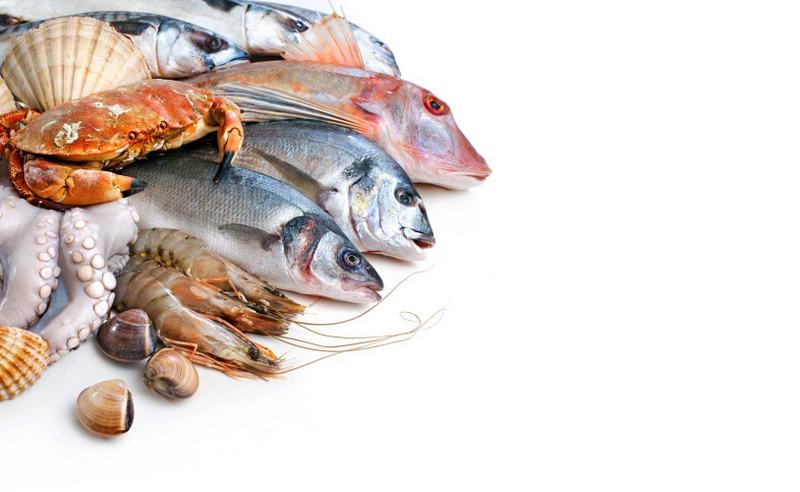Norway to expand sea food trading to Nigeria

One cannot talk of seafood, particularly stockfish without mentioning Norway.
That is why people from various works of life, including international traders, Norwegian and Nigerian government officials, and other stakeholders in the Nigerian fishery industry converged at Eko Hotels, Lagos for the Norwegian seafood seminar on networking relations for Norwegian stockfish, pelagic and salmon in the Nigerian market.
Speaking at the event which was held recently, the Executive Director, Nigerian Institute of Marine Research and Oceanography, Dr. Gbolagade Akande, noted that Nigeria has been importing stockfish from Norway since the 1890s.
A situation he described as a good business relation between the two countries.
However, Dr. Gbolagade Akande, who represented the Minister of Agriculture, Audu Ogbe, regretted that there was imbalance in the bilateral relationship between Norway and Nigeria, noting that the development is to the disadvantage of the country.
Elucidating, he said, “There is trade imbalance in the bilateral relationship because Nigerian imports hugely from Norway but Norway cannot be said to be taking anything from Nigeria. This is not good for our economy. That is why we are advocating for the need to invest and encourage research into the area of aquaculture and fishmeal production. There is a lot of fish in our water that can support fishmeal production, but sadly Nigeria depends largely on importation of fishmeal into the country. We want Norway to come and invest in fishmeal industry in Nigeria to close the gap in this trade imbalance.”
The minister said this is important because Norway is not importing oil from Nigeria because Norway too has oil. He called on Norwegian government to look at the seafood sector of agriculture where the two countries have many things in common and invest in it. He described the seminar as another opportunity for Nigeria and Norway to move forward in their business relations.
“Now we are talking of how to move forward and the way to go about that is to work on how we can bridge the disparity between demand and supply. To achieve this, the two countries will collaborate to inject money into research while Norway is particularly needed to set up fishmeal companies in Nigeria,” said Ogbe
While pointing out that there is still a huge potential in the market, Ogbe put the demand of 180 million people population in Nigeria at 2.7million metric tons, out of which he said Nigeria is only producing 1.7 metric tons.
The Norwegian Deputy Minister of Trade, Industry and Fisheries, Mr. Ronny Berg, expressed the wishes of the Norwegian government and exporters to assist the Nigerian fish importers trading with them in any legitimate way they can as well as in other fisheries sector like aquaculture in this period of Nigeria’s scarce foreign exchange and slow trade in the non-oil sector.
Mr. Ronny Berg, who was represented by the Ambassador of Norway to Nigeria, Jens-Peter Kjemprud, also admitted that there is a lot of opportunities in the seafood sector and promised that Norway is determined to collaborate with Nigeria to explore the sector.
He, however, stated that the recent economic situation in the world has affected the sector like other areas of the global economy but added that a lot is being done to boost production and create jobs, where necessary.
The ambassador also agreed with the Nigerian minister that Norway has been exporting stock fish to Nigeria since 1890s and that Norwegian seafood represents an important source of protein to many Nigerians.
The ambassador, who pointed out that Nigeria is Norway’s biggest trading partner on the African continent, said: “Nigeria and Norway have bilateral trade relations and we have been working closely together for more than 100 years. We are investing in fish, especially stock fish, sardines, and mackerel, as well as oil. Nigeria is a fertile land and that is why we will do more in our investment here.”
He, however, called on the federal government to boost its provision of infrastructure such as power and tighter security for their investment to bloom in order to command more investment into the country. He did acknowledge the fact that Nigerians are friendly people that do not discriminate against foreigners.
During the various presentations, it was gathered that Nigeria and Norway have long-standing traditions for seafood trade that is over a hundred years old. Norway exports stockfish, salmon and pelagic fishes to Italy, UK, USA, Slovakia etc., amongst several countries. Norway exports 34 million meals everyday to 140 countries.
Berg emphasised on the sustainable production of seafood from Norway to Nigeria as well as to other countries all over the world. He stated that Norway’s stockfish is very nutritious and has all the essential nutrients, very high in protein, over 70percent and very rich in omega3 fatty acids that is very good for the human body. Stockfish, he said, is produced in the clear, cold waters of Lofoten in Norway.
Nigeria is the largest importer of Norwegian stockfish and stockfish heads. Norway produces only optimum stockfish and stockfish heads that are fit for human consumption (the product is also eaten in Norway). In 2016, Norway exported almost 7000metric tonnes of stockfish to Nigeria. In the pelagic export – mackerel takes the largest share of the Norwegian pelagic export to Nigeria; with over 16,000metric tonnes imported by Nigeria in 2016. Nigeria is one of the five largest importers of mackerel from Norway.
Berg also noted that aside from trade, Norway has featured prominently in rendering assistance to Nigeria in marine research over the years through the Friedjord-Nansen Marine Project. “The third Friedjord Bansen vessel was christened some few weeks back and Nigeria was represented at the christening in Norway by a senior staff of the Nigerian Institute for Oceanography and Marine Research,” he stated.
Earlier, the ambassador had held a closed door meeting with customs officials and the director of fisheries as well as Norwegian and Nigerian companies active in trade and investment.









0 Comments